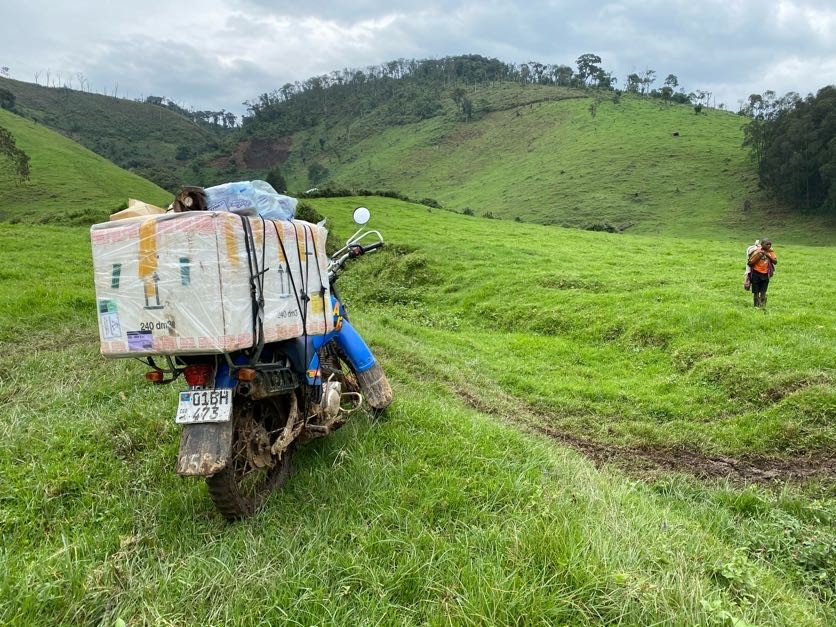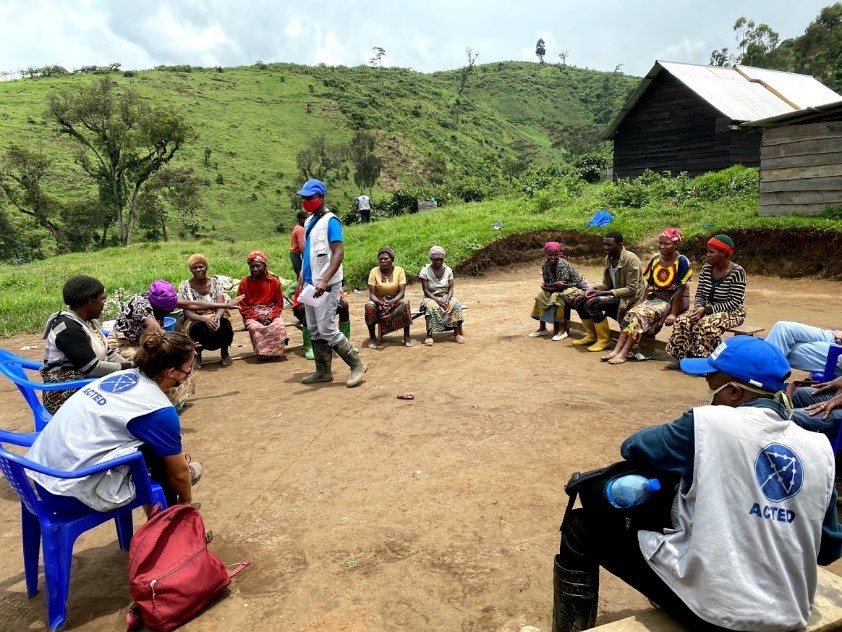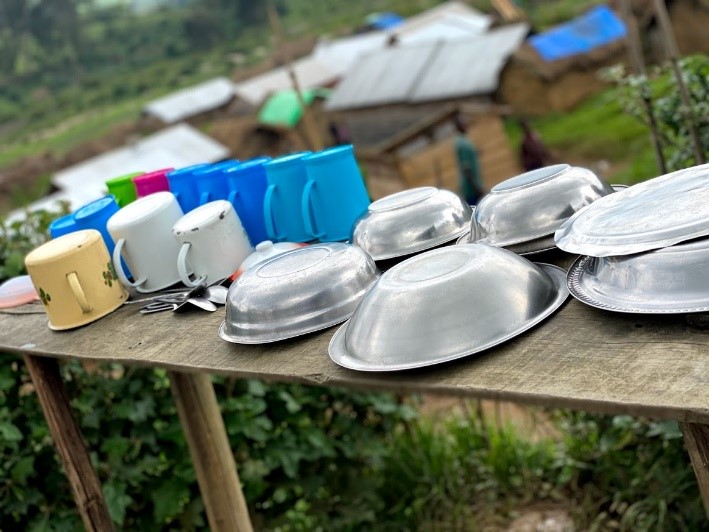The democratic Republic of Congo is at the intersection of major crises within and outside its borders. These include food insecurity, violent conflicts, epidemics and natural disasters.
16 million people are in need of humanitarian assistance in the country. Neighbouring conflicts have also caused significant movements of population in the region, and these people may find themselves in landlocked areas without access to aid or information. As the rainy season approaches, the most isolated provinces, such as South Kivu and Maniema, become increasingly difficult to access.
ACTED intervenes to bring urgent assistance to these isolated populations, with the support of the US Agency for International Development and the Bureau of Humanitarian Assistance. In particular, this intervention aims at facilitating access to humanitarian aid, information and agricultural training.
Cash transfers: an alternative to the logistical challenge
ACTED continues to provide food and non-food items, the main challenge is to find ways to access populations in particularly isolated areas. In areas that are so isolated that bagged food distributions are not feasible, as access by truck is costly and complicated, ACTED opts for cash distributions, provided that its beneficiaries can find nearby markets that are supplied in sufficient quantity and frequency.
In coordination with our partners, different distributions have been organized. More than 6,000 families have received food aid and more than 3,000 have received household kits.
The rainy season, an obstacle to humanitarian aid
In South Kivu and Maniema, road maintenance remains very limited. In addition, South Kivu is a province particularly affected by natural disasters. During the rainy season, roads are often cut off due to landslides or flooding, and bridges are destroyed.
Yves, Monitoring and Evaluation Assistant, experienced this during a monitoring mission: “The biggest difficulty we encounter is the difficult access to the intervention areas during the rainy season. It is during this period that our roads become more and more degraded, leading in particular to muddy roads. Sometimes, this reduces our accessibility to certain villages and forces us to travel by motorcycle or on foot.”

Kalehe, capital of South Kivu, has experienced a major influx of displaced people fleeing the incursions of armed groups from neighbouring provinces. ACTED’s teams have conducted a vulnerability survey among nearly 3600 families affected by this crisis. The distances to be covered by the beneficiaries also proved to be problematic. These examples show the urgency to act on the accessibility sector in the provinces of Maniema and South Kivu.
In order to open up isolated areas and provide rapid access to humanitarian aid, it is essential to set up a network of interconnected roads adapted to the climatic hazards of the region.

